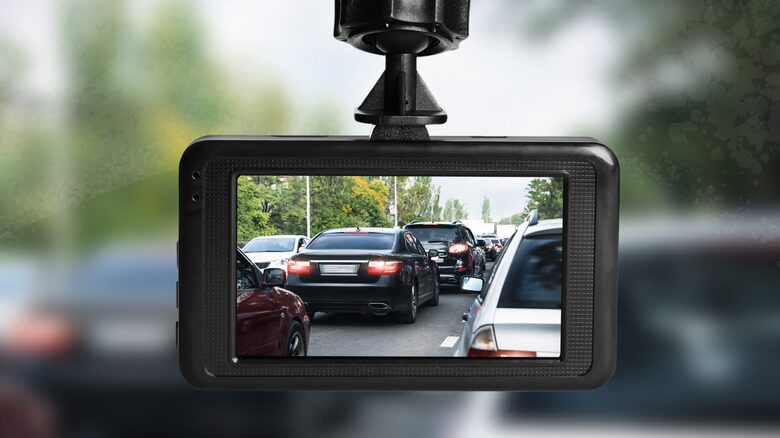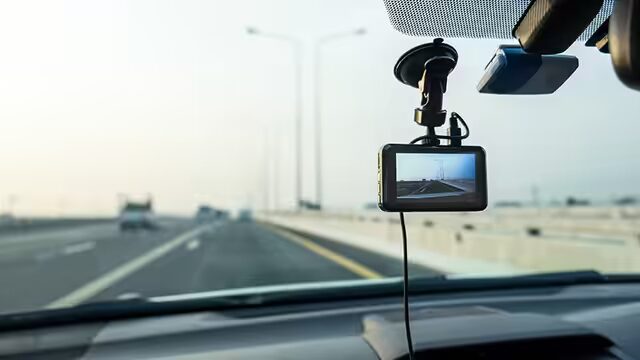Dash cameras have become an essential tool in modern law enforcement, providing a reliable means to capture interactions between police officers and the public. These cameras serve as a critical piece of technology to ensure transparency and accountability within law enforcement agencies. But are police dash cameras always on?
Yes or no, It depends. Some patrol car dash cameras are not always recording, while others are. Often, cameras are set to start recording when the officer turns on the emergency lights or activates them manually. This helps conserve storage and ensures only relevant footage is recorded
Are police dash cameras always recording? Discover the truth behind their operation, when they turn on, and what really gets captured during a police encounter. Stay informed before your next drive!
What Are Police Dash Cameras?
Definition and Purpose
Police dash cameras, commonly known as dash cams, are video recording devices mounted on the dashboard of police vehicles.
Their primary purpose is to record traffic stops, pursuits, and other interactions between police officers and civilians, ensuring that there is an accurate and unbiased record of events.
Types of Police Dash Cameras
There are various types of police dash cameras, ranging from basic models that record video and audio to advanced systems equipped with features like GPS tracking, night vision, and automatic data uploads.
The choice of camera depends on the needs of the police department and the specific requirements of the jurisdiction.
How Do Police Dash Cameras Work?
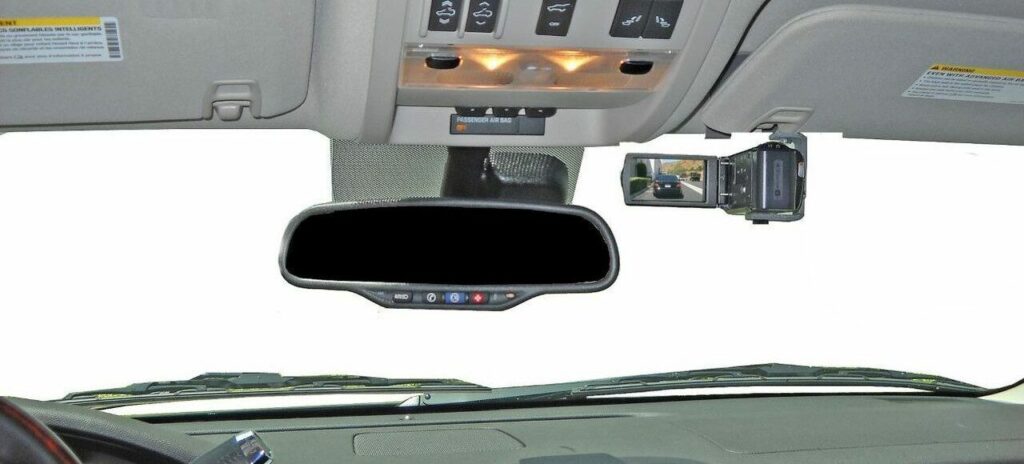
Technical Aspects
Police dash cameras are typically wired directly into the vehicle’s electrical system, allowing them to power on automatically when the vehicle is started.
These cameras are designed to withstand the rigors of police work, with features that ensure durability and reliability in various conditions.
Activation and Recording Mechanisms
Dash cameras can be activated manually by the officer or automatically triggered by specific actions such as turning on the vehicle’s siren or emergency lights.
Some systems are even designed to start recording when the vehicle exceeds a certain speed or is involved in a collision.
Are Police Dash Cameras Always On?
Continuous Recording vs. Triggered Recording
While it might seem logical to assume that police dash cameras are always recording, this is not always the case.
Some dash cams are set to record continuously from the moment the vehicle is started until it is turned off.
Others only record when triggered by specific events, such as when the officer activates the lights and sirens or manually starts the recording.
Factors Affecting Camera Operation
Several factors can influence whether a dash camera is recording at any given moment.
These include the department’s policies, the specific model of the camera, and whether any manual intervention by the officer is required.
Why Might Dash Cameras Not Be On?
Policy and Protocol
Each police department has its own policies and protocols regarding when dash cameras should be recording.
Some departments require continuous recording, while others may only require the camera to be on during specific types of incidents.
Technical Malfunctions
Like any piece of technology, dash cameras can experience malfunctions.
These could range from power issues to memory card failures, which may result in the camera not recording even when it should be.
Manual Deactivation
In some cases, officers may have the ability to manually deactivate the camera.
This could be due to department policy, a need for privacy during certain situations, or other reasons.
How Do Police Dashboard Cameras Work?
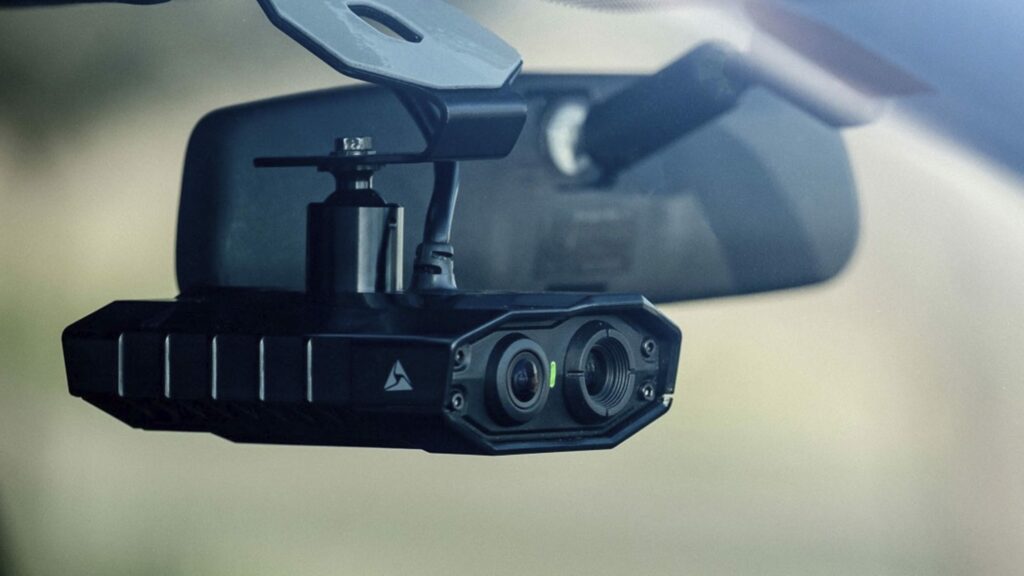
- Mounting: Installed inside police vehicles, usually on the dashboard or rearview mirror.
- Activation: Typically turns on automatically with emergency lights or sirens; some systems support continuous or motion-triggered recording.
- Recording: Captures video and audio of interactions, with footage stored on internal memory or cloud servers.
- Additional Features: Often includes GPS and time stamps for added context.
- Uses: Provides evidence, aids in training, and enhances accountability.
Issues Covered by Dash Cameras!
- The Basis for the Stop: Dash camera footage helps clarify the reason for a traffic stop, providing a visual record of the officer’s observations and the suspect’s behavior.
- Probable Cause to Arrest: Footage can demonstrate whether there was sufficient probable cause for an arrest, showing the interactions and evidence that led to the decision.
- The Reality of Police Dash Camera Footage: While dash cams provide valuable evidence, they may not capture every detail or perspective, and their reliability depends on factors like camera placement and environmental conditions.
Are police dash cameras always recording?
No, police dash cameras are not always recording. They typically begin recording when the officer manually activates them or when the emergency lights are turned on. This setup helps save storage and ensures that only important events are captured.
Do police car cameras record all the time?
No, police car cameras do not record all the time. They usually start recording when the officer activates the emergency lights or manually turns on the camera. This helps save storage space and ensures that only important events are captured.
Best dash cam for recording police interactions?
For recording police interactions, the VIOFO A129 Pro with infrared interior camera is a great option for night use. Other choices include Cobra Smart Dash Cam with live police alerts and VIOFO T130, which offers a pivoting interior camera.
These cameras offer high video quality, wide-angle recording, and reliable storage, ensuring clear evidence of interactions.
Do police cars have cameras in the front?
Yes, police cars in the UK mainly have dash cameras. The use of dashcams began in 2013, with initial tests conducted in North Wales. By law, these cameras must be installed in all first-line response vehicles, and they typically activate automatically during emergencies.
Police car cameras?
Police car cameras, or dash cams, record interactions during traffic stops and other incidents. They can capture video from the front, rear, and sometimes the interior of the car.
Are cop car cameras always on?
No, Police car cameras are usually always on, but they do not record continuously. They often start recording automatically when the vehicle is activated, the emergency lights are turned on, or when certain conditions are met, like reaching a specific speed.
Do cop cars record at all times?
No, cop cars do not record at all times. The recording usually starts when the officer activates it manually or when the emergency lights are turned on. This helps save storage and ensures that only significant events are recorded.
How long do police keep dash cam footage?
| Location | Retention Period |
| United States | 30 days to 1 year |
| Canada | 30 days to 6 months |
| United Kingdom | 31 days (may extend for incidents) |
| Australia | 90 days to 1 year |
| New Zealand | 30 days to 1 year |
| Germany | 30 days, may vary by state |
| France | 1 year for incidents |
| Netherlands | 1 month to 1 year |
Are police dash cameras always on?
No, police dash cameras are not always on. They typically activate manually by the officer or automatically when the lights are turned on or during specific events, such as a traffic stop..
Cop car cameras?
Cop car cameras, also known as dash cameras, are video recording devices installed in police vehicles. They capture real-time footage of traffic stops, pursuits, and other police activities.
These cameras can provide evidence in investigations, enhance accountability, and improve officer safety. Typically, they may have features like automatic activation, night vision, and integration with other systems like body cameras or in-car video systems.
The footage from cop car cameras is often used in court cases or for internal reviews by police departments.
Emergency vehicle dash cameras?
Emergency vehicle dash cameras capture incidents from the vehicle’s perspective. They are used in police cars, ambulances, and fire trucks to record events for safety, evidence, and training purposes.
Does a dash cam stay on all the time?
No, a dash cam does not stay on all the time. It typically starts recording when the car is turned on or when manually activated. Some dash cams are designed to record only during specific events, like when emergency lights are used or in case of motion detection.
Do cops always have a dash cam on?
No, cops do not always have their dash cam on. It usually turns on with the police car’s emergency lights or sirens. Some dash cams may record all the time, depending on their settings.
Do truck dash cameras record all the time?

No, truck dash cameras don’t always record all the time. They often start recording when the truck is turned on or detects motion. Some models can record continuously, depending on their settings and features.
Should dash cam always be on?
No, A dash cam does not always need to be on. It’s useful to have it recording while driving or parked to capture important events. Whether it should be on all the time depends on personal needs.
How far can police car cameras see?
Police car cameras can see a few hundred meters ahead, depending on the camera’s quality and angle. They are designed to capture clear video of nearby vehicles, road signs, and important details.
Do all police cars have dash cameras UK?
Not all police cars in the UK have dash cameras. While many do, it depends on the police force and their equipment. Dash cameras help record events, but their use varies across different areas.
Do police cars have cameras inside?
Yes, police cars often have cameras inside. These cameras record interactions between officers and people they stop, helping to provide evidence and improve safety. The exact setup can vary by location and police force.
Do police cars record when car is off?
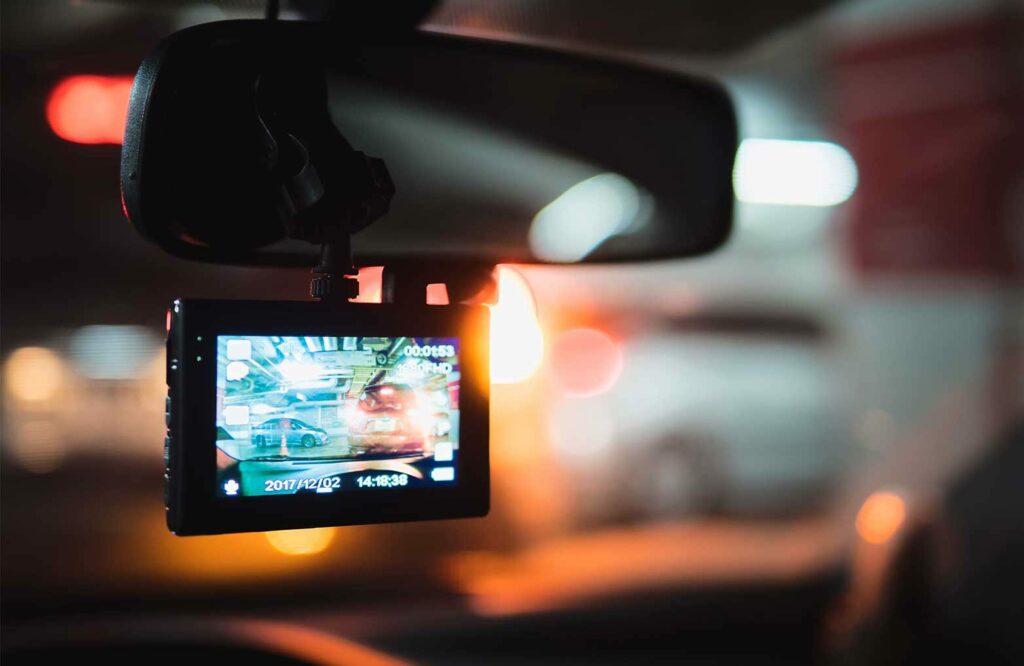
Yes, some police cars have cameras that can record even when the car is off. These systems can continue to capture video for a certain time or when motion is detected around the vehicle. It depends on the equipment used.
Do police body cameras record all the time?
No, police body cameras do not record all the time. They usually start recording when officers activate them manually or in certain situations like a traffic stop. Some models have pre-recording features to capture moments before activation.
When did police start using dash cameras?
Police began using dash cameras as early as 1939, when a California Highway Patrol officer mounted a motion-picture camera on his car. Widespread use started in the early 1990s, but storage was challenging due to the lack of modern digital storage options.
What are the cameras on the back of police cars?
The cameras on the back of police cars are usually used for recording video of what’s happening behind the car. They help with safety and capturing evidence during traffic stops or pursuits.
How far away can a police camera catch you?
A police camera can usually capture video from a few hundred meters away. The exact distance depends on the camera’s quality and its position on the police car, but it can cover a good area around the vehicle.
Can I request dash cam footage from a police car?
Yes, you can request dash cam footage from a police car, but it often requires a formal request or legal process. The rules vary by location and the reason for your request, such as for legal cases or complaints.
Are cop cars dash cams always on?
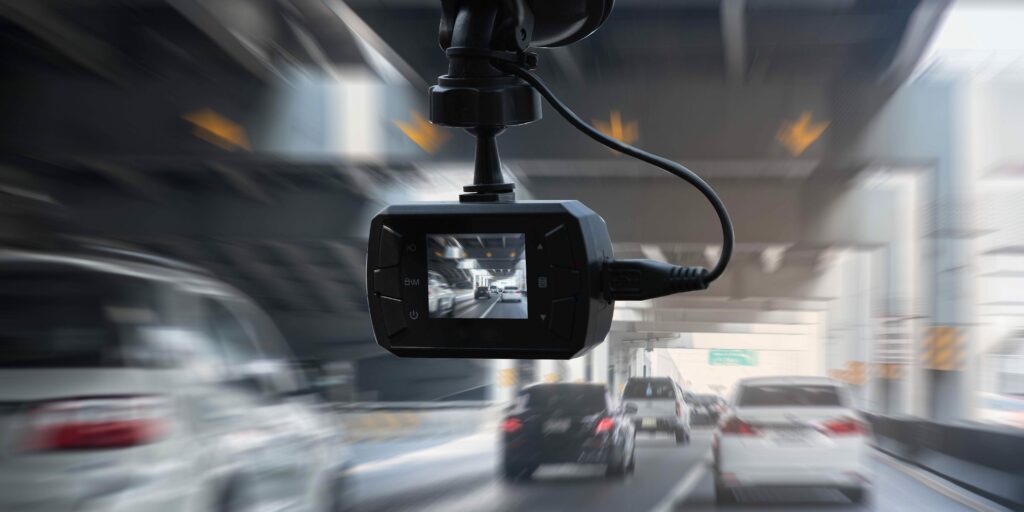
Yes, Police dash cameras are technically always on but don’t record continuously. They mainly start recording when triggered by specific actions, like turning on emergency lights, ensuring key events are captured without constant recording.
FAQS:
What Are Police Car Cameras Actually Capable Of?
Police car cameras can record video and audio of what’s happening around the car. They can capture details like road conditions, traffic stops, and interactions with people, helping with evidence and improving safety.
Are the police dash cams recording when the officer is conducting a routine traffic stop?
Yes, police dash cams usually record during a routine traffic stop. They activate automatically or when the officer turns on the emergency lights, capturing video of the stop and interactions with the driver.
Is it possible for a dash camera to drain my battery?
Yes, a dash camera can drain your car’s battery, especially if it is left on for a long time when the car is off. Using a hardwiring kit or parking mode can help reduce battery drain.
Do police body cameras capture audio?
Yes, police body cameras often capture audio along with video. This helps record conversations and interactions during police encounters, providing a complete record of what happens during an incident.
Do police dash cameras run constantly?
No, Police dash cameras do not always run constantly. They typically start recording automatically when the car’s emergency lights or sirens are on. Some models may have continuous recording or motion detection features.
Conclusion:
In conclusion:
No, Police dash cameras are not always recording. They typically turn on automatically with emergency lights or sirens. Some models support continuous or motion-triggered recording, depending on the system and department policies. Technical issues or manual deactivation may also affect recording
















